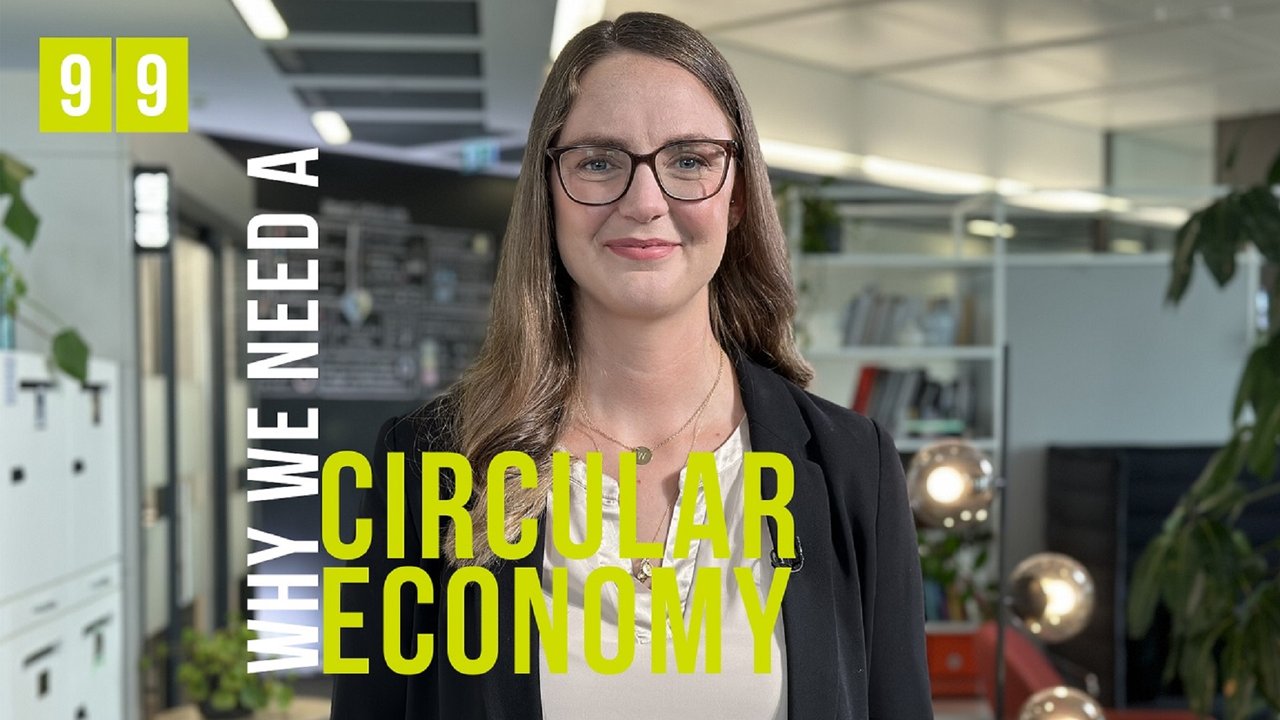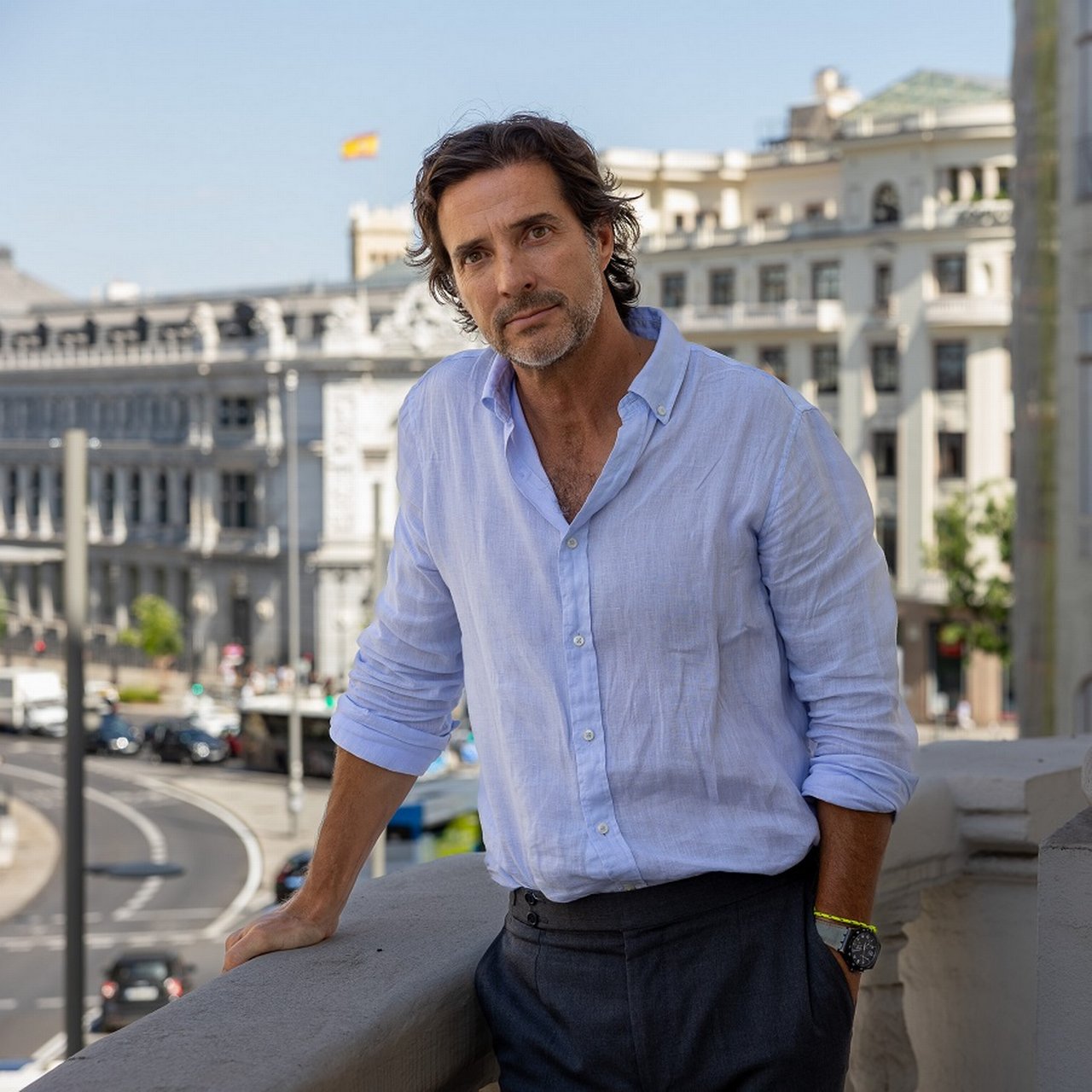Be mindful of what you consume
Charlotte Woodside, sustainability expert at Deutsche Bank, explains in an interview what fascinates her about the circular economy, what role Deutsche Bank is playing in this growing market and where innovations are still needed.
Charlotte, your work has been related to the circular economy for a long time – what fascinates you about it?
The circular economy is multifaceted. I started working in the waste management industry – a job that many would think is dirty and disgusting, but it has so much potential.
As a child, I was fascinated with the concept of getting something new from something you’ve thrown away: a new shampoo bottle from recycled plastic – at least that’s how I was told it worked, but this is simply wrong. I was shocked that so many people still believe this and we’re not doing anything to change the story. That's one of the reasons why I ended up in the field of sustainability – to promote the topic. In the circular economy model, there are so many players and so many levers. For me, the goal must be to return that empty shampoo bottle and get a new one made with the old plastic.
In your opinion, what adjustments are currently the most viable for the biggest impact?
Of course, the first thing that comes to mind is the recycling industry. Recycling is an important building block, but a circular economy makes little sense unless it is an integral part of product design. There are many other factors, too: consumers, regulators, banks and, of course, all other participants in the value chain.
Above all, it is important that recyclers talk to producers. Take black plastic for example, sorting systems are not able to detect black-coloured plastic that has been dyed using soot. That means it cannot be filtered out for recycling. If manufacturers know this, they can work together with recyclers to find a dye that colours just as well and use it so that black plastics can be detected better and consequently sorted correctly for recycling. Clariant, Unilever and Tomra showed how this works.
Above all, it is important that recyclers talk to producers.
Staying with raw materials, which ones are most suitable for the circular economy?
Nowadays, it is generally understood that paper and metal are both recycled. There are many other types of materials, though. Let’s take plastic again. Plastic still poses challenges that many are not aware of: there are many different types and specifications and each has been manufactured to fulfil a specific use.
One type of plastic, for instance, guarantees the lifespan of food. There is a lot of transparent plastic, especially in the food sector, but we cannot use it exclusively because the influence of light damages certain products. Some products cause a chemical reaction with certain plastics. For this reason, it is not possible to standardise plastic by type. And this is a big problem; different types of plastic cannot be recycled together.
Which participants are currently playing the smallest role in the circular economy?
It’s us, the consumers. A yoghurt pot, for instance, can't be recycled if we don’t remove the cardboard sleeve first; the sorting machine can’t see the plastic pot ’through the paper so it can’t be sorted out. We either sort or separate incorrectly, or fail to separate at all but we want new products to come packaged in flawless plastic. This means that consumers are part of the problem and we could make a great contribution to a functioning circular economy.
Consumers are part of the problem.
Moving onto other players – the bank for example: what is the significance of the circular economy for Deutsche Bank?
Deutsche Bank covers circular economy within its Sustainable Finance framework, which defines activities Deutsche Bank classifies as sustainable.
Deutsche Bank covers circular economy within its Sustainable Finance Framework, which defines which activities Deutsche Bank classifies as sustainable. We want to live up to our responsibility with regard to our environmental impact as well as our corporate social responsibility. For this reason, we help our clients integrate elements from the circular economy into their business model. If, for example, a company sets itself the goal of using less packaging or reducing plastic waste, it could be eligible for sustainable financing.
What needs to be done to ensure that more money flows into the circular economy?
I believe that legislation will soon change that. For example, it is not always allowed to repatriate recycled products, especially those that come into contact with food. This is different with PET bottles, which may be reused for liquids. Plastic that is disposed of as part of Germany’s “yellow bin” scheme is no longer safe for packaging food and may therefore not be reused for this purpose. This even applies to bags in which potatoes are sold, even if they are not eaten raw.
It's a bit frustrating when this type of plastic can then only be used for things like inferior pipes or park benches, for which there's not much need. The greatest demand is for newly produced plastic. There is still a lot of potential here to keep all varieties in the loop.
The greatest demand is for newly produced plastic.
What innovations does the circular economy need?
If you take recycling, the mechanical process is already quite advanced. Chemical recycling is less well developed, but would offer potential for food-grade plastics. The challenge with this process is that it is extremely expensive and the recycler needs large quantities of plastics to be able to work economically. Also this method uses high amounts of energy. But this is only one building block. Every actor in the circular economy needs to be innovative.
Growth often drives innovation. How does this occur in the circular economy?
For a while, people believed that companies designed their products for them to break once the warranty expired. I don't think this is the case, but it is true, of course, that companies need to adapt. By doing do there is more scope for innovation and new business areas are opened up, like repairs or expanding the range of spare parts.
Companies have to align themselves differently in this respect. This might be a bit more complex, but it’s actually quite lucrative. Outdoor brand Patagonia is a pioneer here. They have designed an entire second hand line of business. Furthermore, there are already a number of companies that specialise using discarded plastic for their products. This is another way to return components back to the cycle.
What is Deutsche Bank doing to be part of the circular economy?
Deutsche Bank has already made some important progress in terms of producing less waste. Thanks also to digitalisation, for example, we now use significantly less paper. The bank endeavours to do what it can. Since we are not a manufacturing industry, we have fewer options but we have introduced re-usable coffee cups and food containers in the canteen.
Payment cards made from recycled plastic
By the end of 2024, all payment cards of Deutsche Bank and its subsidiaries will gradually be made of recycled material. All of the bank's newly issued cards are produced on the basis of so-called rPVC (recycled polyvinyl chloride). The bank is thus gradually replacing all the cards of its approximately 19 million customers in Germany, i.e. when a card expires or a replacement card is needed for other reasons.
Do you have a tip for avoiding waste?
Planning. I plan what I consume: what I eat and when; I like to bring my own lunch to work and I take containers with me when I go shopping. I am more mindful of what I buy and try to avoid returns altogether when ordering online. I also avoid throwing away food. Although it does rot away, producing food takes energy and draws on resources. Just consume a little less and be more mindful of what you do consume.
The interview was conducted by Katrin Palm. 09/2023

About Charlotte Woodside
Charlotte Woodside works in Deutsche Bank's Sustainability department, in the Sustainable Finance team, where business transactions are checked to see that they meet the bank's sustainability criteria. Charlotte started out in the recycling industry and, for many years, her work has been related to the circular economy.

Katrin Palm
… is responsible for digital campaigns and communication projects. For her, recycling has been an issue since childhood. And although she has been interested in the circular economy for some time, she was able to learn a few more things in the conversation with Charlotte. She hopes that this topic will pick up speed even faster and gain more popularity and importance.
Recommended content
Responsible Growth | Opinion
“Circularity is our way forward. It's not painless, though.” “Circularity is our way forward. It's not painless, though”
Our economic system works like a burner, says Steven Stone from the United Nations – a very inefficient form of value creation. How a circular economy can help.
Responsible Growth | Video Story
Sustainability is always in fashion Sustainability is always in fashion
Spanish label Ecoalf is a pioneer in the industry, showing how stylish urban fashion can be both sustainable and profitable.
Responsible Growth | Opinion
Circular economy – it’s more than just recycling Circular economy – it’s more than just recycling
High energy costs, fragile supply chains and political risks: Rebecca Tauer from WWF explains how the circular economy can help.







